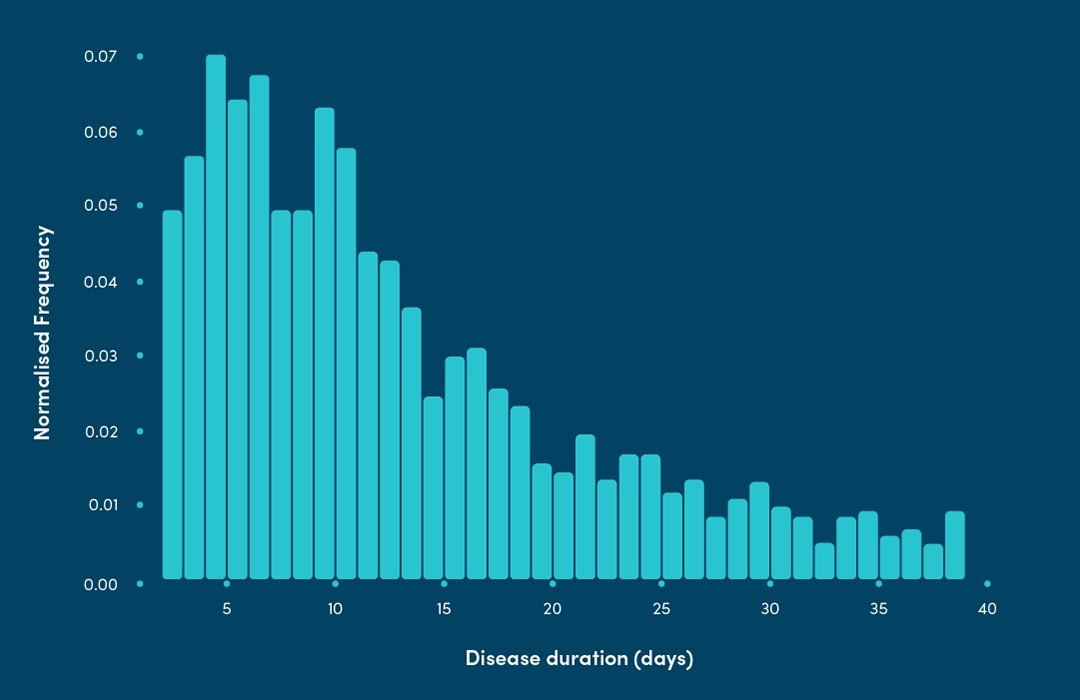
7 things you need to know about staying safe as lockdown measures begin to lift
June 22, 2020

This article has not been updated recently
As lockdown begins to lift in the UK, it's more important than ever to take precautions to stay safe and prevent new outbreaks of COVID-19.
With the relaxing of lockdown measures, including the reopening of non-essential shops and pubs, more people taking the opportunity to head back to the high street. So we wanted to share seven things that everyone needs to know about staying safe as lockdown measures ease. We hope these points will keep you up-to-date with the latest advice and key information that you need to keep you and your loved ones safe.
1. Regular and proper hand washing
At the beginning of the COVID-19 outbreak there was a lot of focus on hand washing, and for good reason. Hand washing is one of the easiest ways we can protect ourselves and others from COVID-19. Washing hands thoroughly with soap and hot water removes traces of the virus, stopping us spreading it to the surfaces we touch and also on to our own faces and mouths.
Basic personal hygiene like this is even more important right now if we want to prevent unnecessary spread of COVID-19 and another resurgence of the virus in the population. For more information about how to wash your hand please visit the NHS website.

2. Cover your mouth and nose when you can't keep socially distant
Wearing a face covering in public has now become compulsory for people travelling by bus, train, ferry or plane in England (with a few exceptions, which can be found here). This is a precautionary measure to help slow the transmission of COVID-19 on the public transport and in public places. We also recommend wearing a face covering in any situation where you are indoors and can’t keep at least 1m from people outside of your family bubble.
For more information about the use of face coverings please visit:
- When and how to use masks (World Health Organization)
- How to wear and make a cloth face covering (Public Health England)
3. Avoid public transport where you can
Public transport due to the proximity and shared surfaces make it a perfect place for viruses to spread so try to avoid using buses, trains and tubes where possible by walking or cycling, and not making any non-essential journeys. With lockdown lifting this might seem like it is unnecessary and restrictive but as we know from the data the virus is still in the population, so limiting public transport will reduce your likelihood of catching the virus and of you spreading it further. Plus, physical activity like cycling and walking more is great for a person’s overall health so it's a win-win!
4. Be aware of all the symptoms of COVID-19
The UK Government has only officially stated that there are three symptoms of COVID-19; fever, persistent cough and loss of smell and taste (anosmia). But did you know that according to the research from the COVID Symptom Study we have identified 19 symptoms related to COVID-19? This seems like a lot, but it’s important to know all the potential symptoms because if you or someone you know is experiencing any of these it might mean you or they have COVID and therefore need to stay at home.
The most important are those that often occur in the first two days, which can be confused with other causes. These include headache, sore throat and muscle pains. The classical NHS approved symptoms typically occur at days 3-4 although there is wide variation. The full list of symptoms are (in rough order of how predictive they are of the disease):
- Loss of smell/taste
- Persistent cough
- Fatigue
- Loss of appetite
- Skin rash
- Hives
- Fever
- Severe muscle pain
- Shortness of breath
- Diarrhoea
- Delirium
- Abdominal pain
- Chest pain
- Hoarse voice
- Eye soreness
- Sore or painful throat
- Nausea or vomiting
- Headache
- Dizziness or light headedness
If you have any of these symptoms we recommend that you observe strict self isolation whilst you wait to be tested to find out whether or not you are infected with COVID-19. Users of the COVID Symptom Study app will be invited to receive a test if they begin to start logging that they are feeling unwell after logging previously being healthy.
5. Test yourself at home
If you are unsure whether or not you have some of these symptoms, there are a few simple ways you can check yourself at home. Things to ask yourself include:
- Can you smell certain cupboard staples like coffee, orange zest or mint? If you struggle to smell these you could be presenting with loss of taste or smell a key symptom of COVID-19.
- Do you have a temperature? You can check yourself by using an at home thermometer or checking how the skin feels to the touch.
- Do you have a rash? One of the early signs of COVID-19 is skin rashes, it’s a good idea to check your body daily, particularly your chest or back and your toes.
- Pay attention to symptoms that are very unusual for you. For example if you never get headaches -then it will be more suspicious than if you suffer regularly.
6. Be aware of how long COVID-19 can last
The data from the app shows us that on average it takes people 10-12 days to start feeling better. And we are seeing a significant number of people reporting symptoms that can go on much longer than this, in some cases for 30 days or more in one in 20 people. Many long term sufferers will relapse with days when they feel well, giving them false hope that they have recovered. The idea that COVID lasts for just a few days and is like flu is misleading, being aware that feeling unwell can last for a long time is important to make sure we aren’t expecting ourselves and others to feel better too quickly and encourage people to stay at home until they feel better!

7. Know your risks - according to the data!
Our data from nearly 3 million users of the COVID Symptom Study app showed that people who are older, obese, suffering from pre-existing lung or cardiovascular disease or living with diabetes are most at risk of ending up in hospital with COVID-19.
Our research team focused on three COVID ‘positive’ groups of users who are either definitely or highly likely to be infected with coronavirus - those reporting a positive coronavirus test, those who self-reported as having had COVID-19), and people who are highly likely to have had COVID-19 based on specific clusters of symptoms (imputed COVID) - to see whether there was a correlation between the likelihood of being admitted to hospital with severe COVID-19 symptoms and any underlying health conditions.
This is currently the largest study looking at the risk factors affecting hospitalisation from COVID-19. The findings support several previous smaller studies showing that people with diabetes, heart disease and high blood pressure, kidney disease and other longterm conditions and those over 70 are at increased risk from COVID-19. Smoking also had small extra negative effects. The findings are available as a pre-print on medRxiv and have been submitted to a leading scientific journal for peer review and publication.
Knowing about the links between coronavirus and these pre existing conditions such as diabetes and obesity isn’t about blaming or shaming or scaring: it’s about making sure that people who are at risk can be protected and get the care that they need if they get sick. If you fall into any one of these groups, we recommend that you continue to observe stricter social distancing rules and be cautious when heading out into the public places like shops that are now open.
Please keep reporting daily, even if you are well
The COVID Symptom Study app is helping us monitor the spread of the virus in communities and identify potential hotspots earlier. Once you’ve downloaded the app, it takes less than a minute to check in and log your health status, whether you’re feeling well or are experiencing any symptoms of COVID-19. Right now there are almost 4 million people across the UK, US and Sweden using the app to monitor their health, providing vital real-time data on the spread of coronavirus, but the more people we have using the app the better. Please continue to log your health daily, and share with friends, family, and your wider community too.












.png)


.jpg)














.png)







%202.png)
.png)


















.png)






